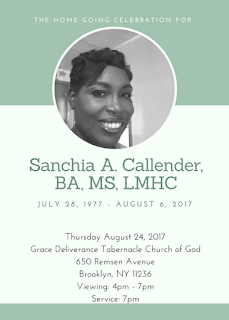Poor Planning and Mediocrity
Arresting children with disabilities and learning
disorders when the adults around them fail to meet the children’s needs is a
triumph of poor planning and mediocrity. The latest example of this, that we
know about, occurred
in a school in Dallas, Texas.
April Obin says her son has attention-deficit/hyperactivity disorder (ADHD), and tends to disrupt class at Gabe P. Allen Elementary School several times a week. But he has trained counselors that help him cope with the mood disorder.
On May 9, Obin says her son had an episode that turned violent and he began to bang his head against the wall.
Obin's attorney, Amar Dhillon, says the school was having standardized testing that day. The boy's counselor wasn't available, so they called his mother in for assistance.
Now you might be wondering why there was no one else
at the school able to help April Obin’s son without the situation allegedly deteriorating
the way it did. I know I am. Did anyone think, hmm, we should have a plan in
place to help this student get through his day on the off chance this counselor
might take a sick day, a personal day, go out for training, or otherwise not
show up for work? Was there no one else in the entire building who had a relationship
with this child who could help him feel safe? In situations like this adults
have all the power and all the resources. How they treat a child can make or
break that child's day. Did any contingency planning happen before this alleged
incident occurred?
Failing to have adequate supports in place for April
Obin’s son the school then made the fateful decision to call district police
and the situation seems to have tanked even more. One would think that a school
district police force deployed by a school district would be trained on how to
interact with students with disabilities to put students at ease. If what this
child’s family alleges is true one would be wrong.
"Before she could get to the school, the DISD police department was called," Dhillon said. "[They] handcuffed the child and took him away."
While handcuffing a child because the adults around
him failed at protecting and supporting him is bad enough that’s not the full
extent of what the family alleges happened to this child.
His family says the school and police made the situation much worse than it needed to be.
Dhillon has made serious accusations against district police, saying officers used excessive force on the child by causing bruising on the boy's legs as a result of beating him with a baton. The family's lawyer also claims police used a Taser during the encounter.
"The boy did vividly describe being shocked and his body convulsing," Dhillon said. "He was very clear about that."
Families of children with disabilities have an easy
time believing these accusations. Some of us homeschool out of fear of this
happening to our children. Others of us make regular visits to our children’s
schools to keep an eye on everyone. Others of us have no choice but to hope for
the best. Untold numbers of us find ourselves in situations like this family or
this
one.
But wait, there’s more! After arresting this child at
school officers took him to mental health facility without parental consent where
the following ensued, also without parental consent.
Upon his arrival, the mental health facility gave the boy emergency medication to help calm him down, CBS Dallas-Fort Worth reported. The facility then fought a judge to keep him there for up to 30 days. The boy remained in the facility's custody until Monday.
You know what, stuff like this makes becoming a
backwoods prepper look ever so appealing. Having disabilities does not mean that
their rights can be trampled. Neither can parental rights be trampled because
you have children with disabilities. We can come up with better ways to support
students with disabilities at school that don’t involve traumatizing encounters
with law enforcement and forced confinement in mental health facilities.



Comments
Post a Comment